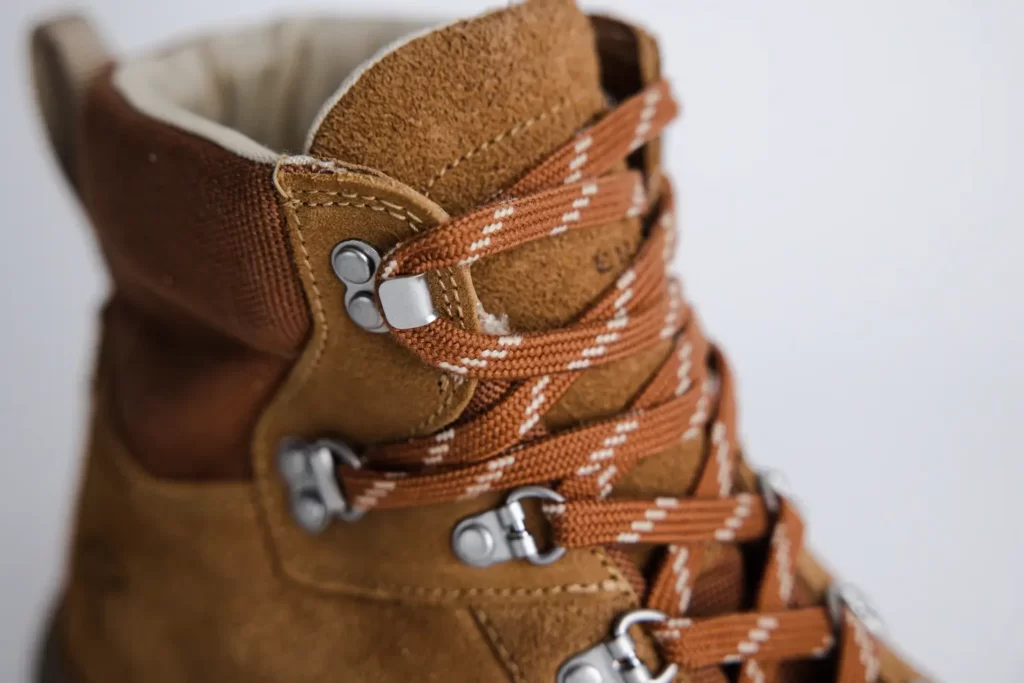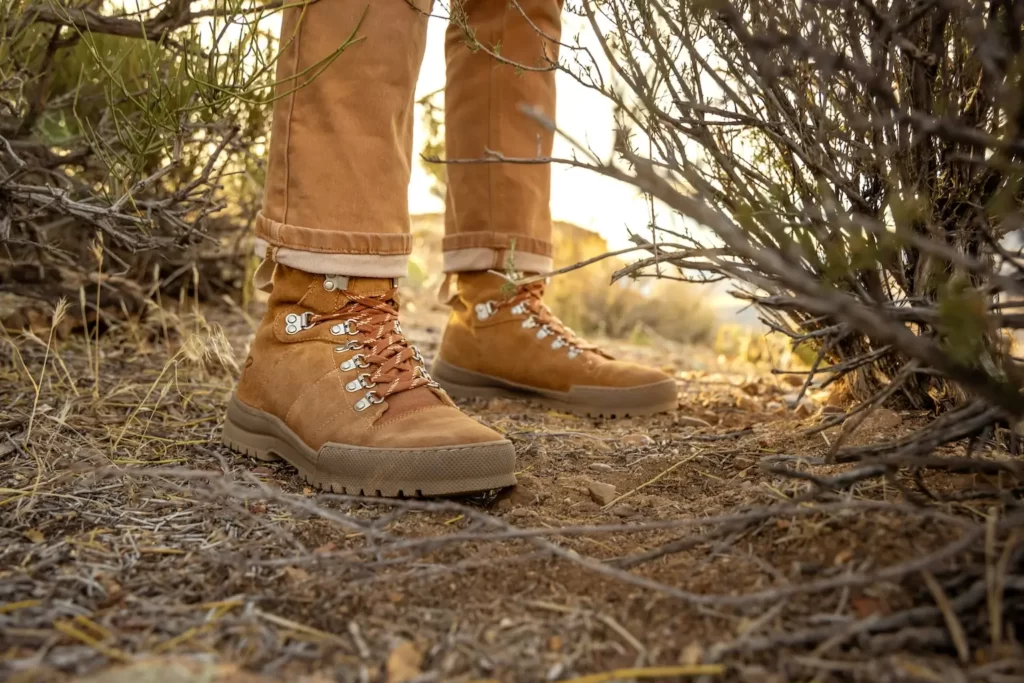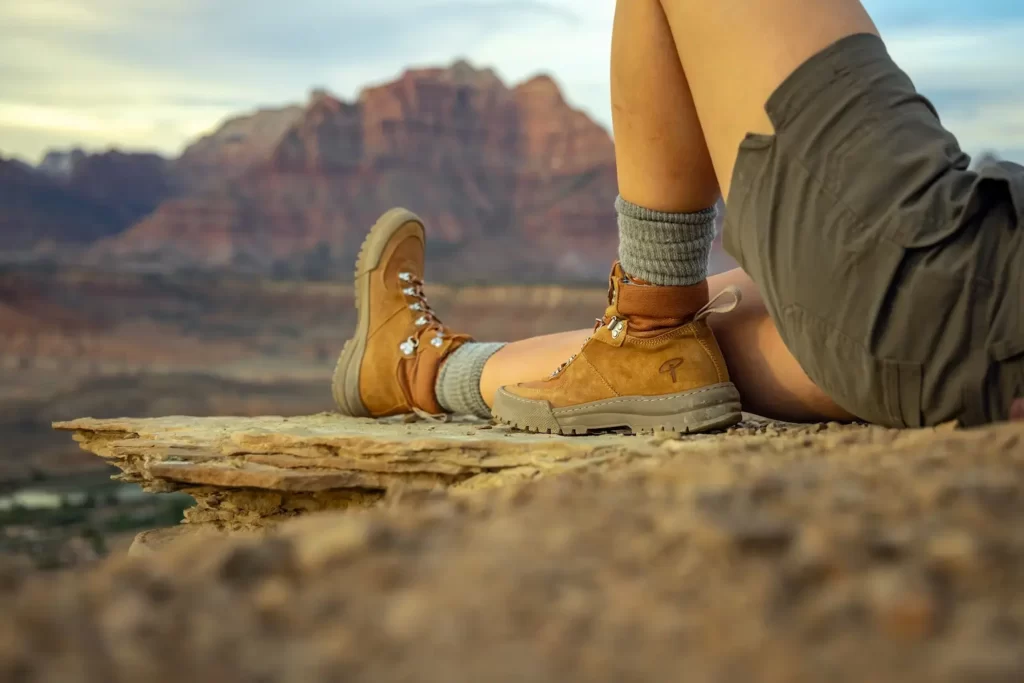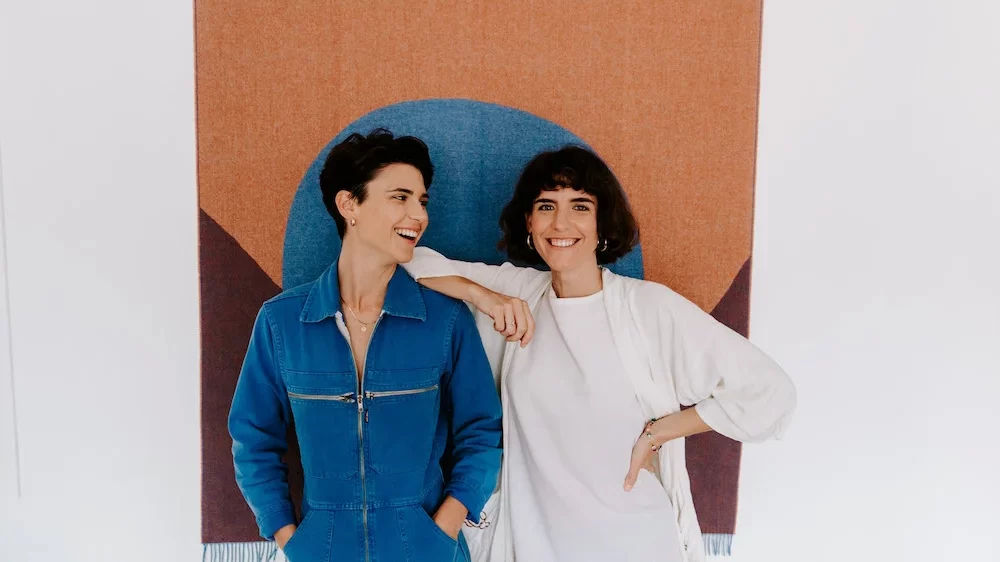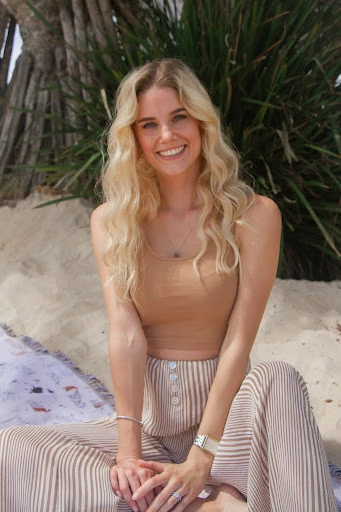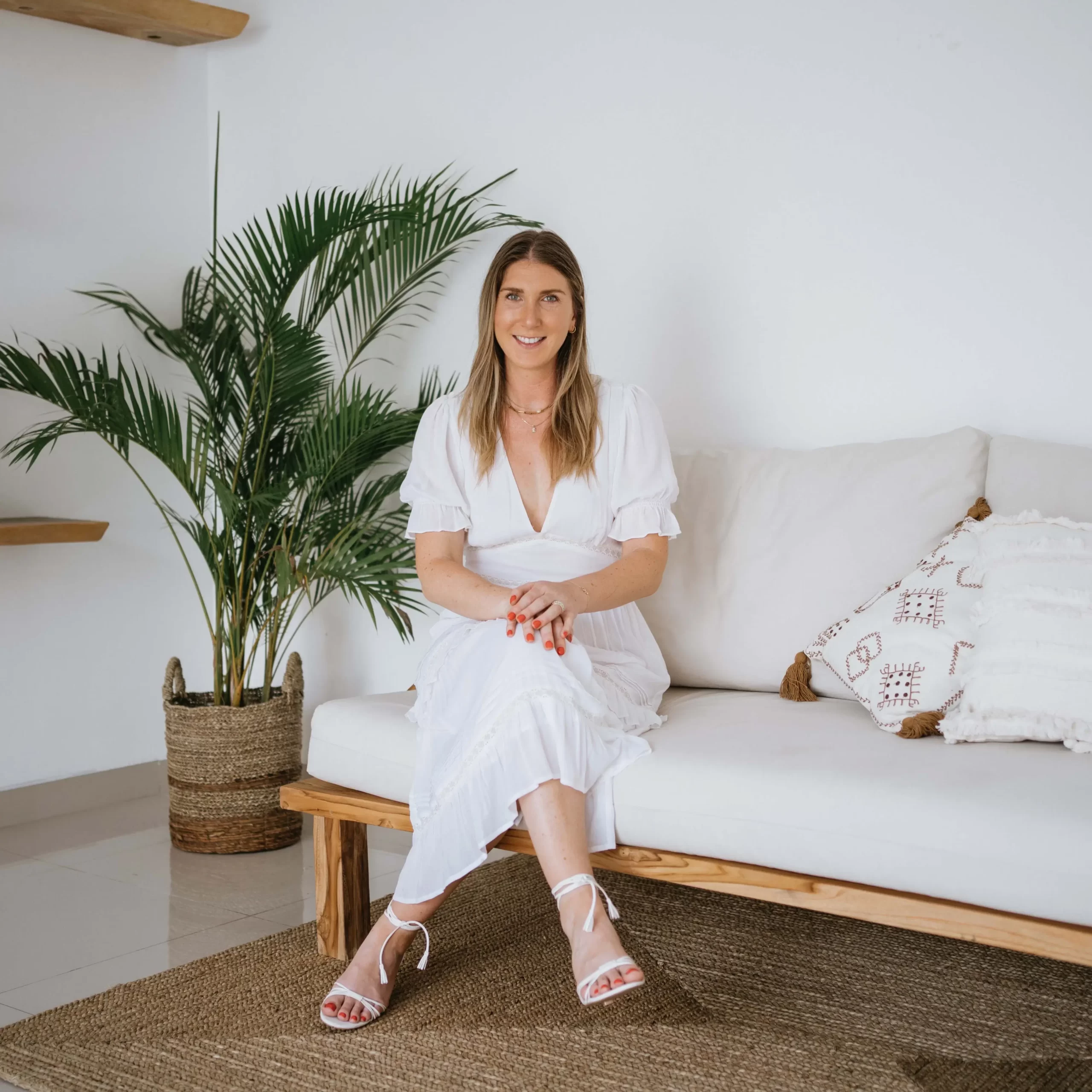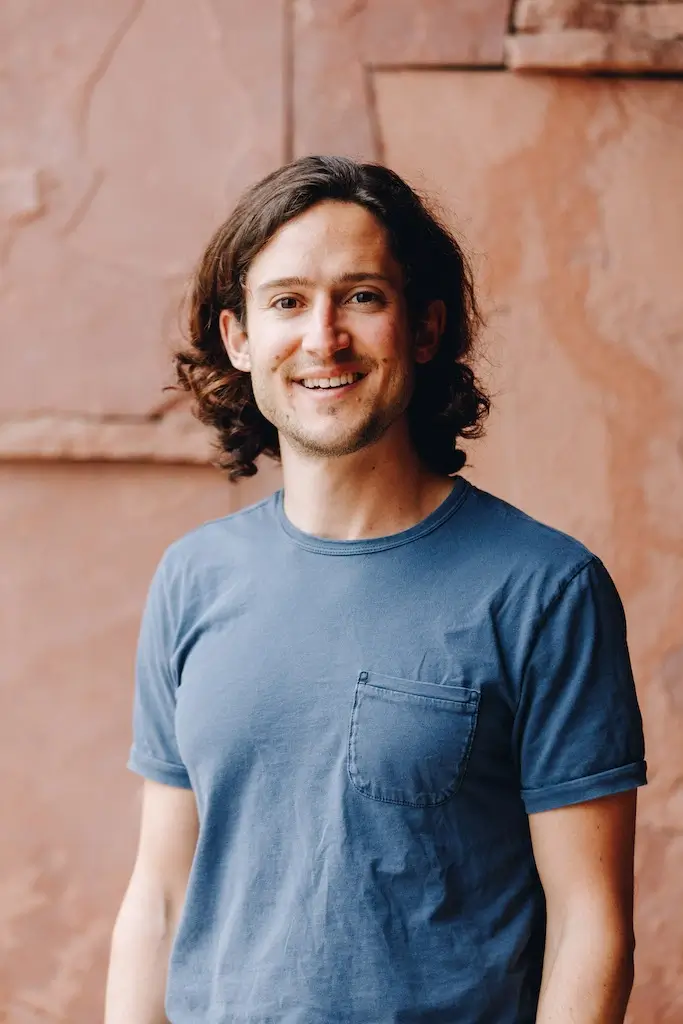
Founded by fourth-generation shoemaker Noah Swartz, Erem® is a refreshingly different footwear brand on a mission to transform the outdoor performance industry and take footwear back to the earth.
We catch up with Noah as he takes us behind the scenes of his brand Erem®, discussing the challenges the brand has faced, what sets Erem® apart from other brands, and his hopes for the future.
Hello! Who are you, what brand do you run, what kind of product do you create?
My name is Noah Swartz, I am a fourth generation shoe maker, and I am the founder of Erem®: a new outdoor performance brand.
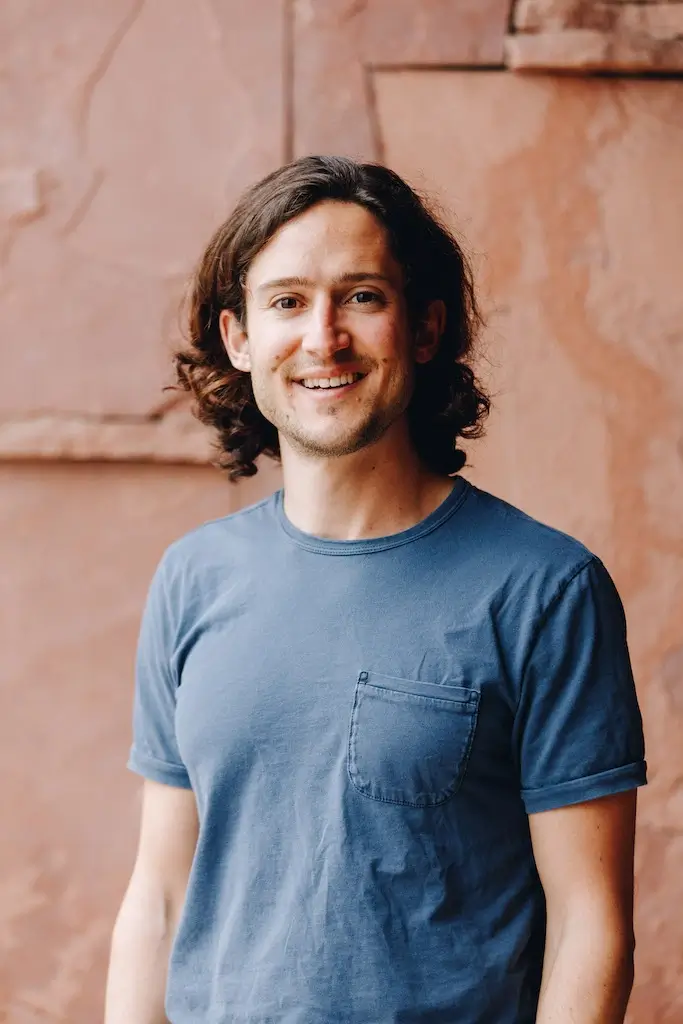
We make hiking footwear that is setting new standards in performance and sustainability. Our first products are the Xerocole® and Xerocole Expedition® hiking boots specifically built to handle the extreme conditions of desert terrain. They are also the world’s first Biocircular hiking boots - a concept never used in hiking footwear before. Biocircular means the products are made from materials that can return to nature, and that we will take them back at the end of their long life to be re-streamed into responsible next lives.
We also just launched a Kickstarter campaign for our newest product - the Gila sandal, which we believe is the world’s best performing and most sustainable adventure sandal.
Why did you start Erem? What inspired you?
I started Erem for two reasons. The first is because I couldn’t find footwear that performed adequately in the desert, a landscape that I fell in love with.
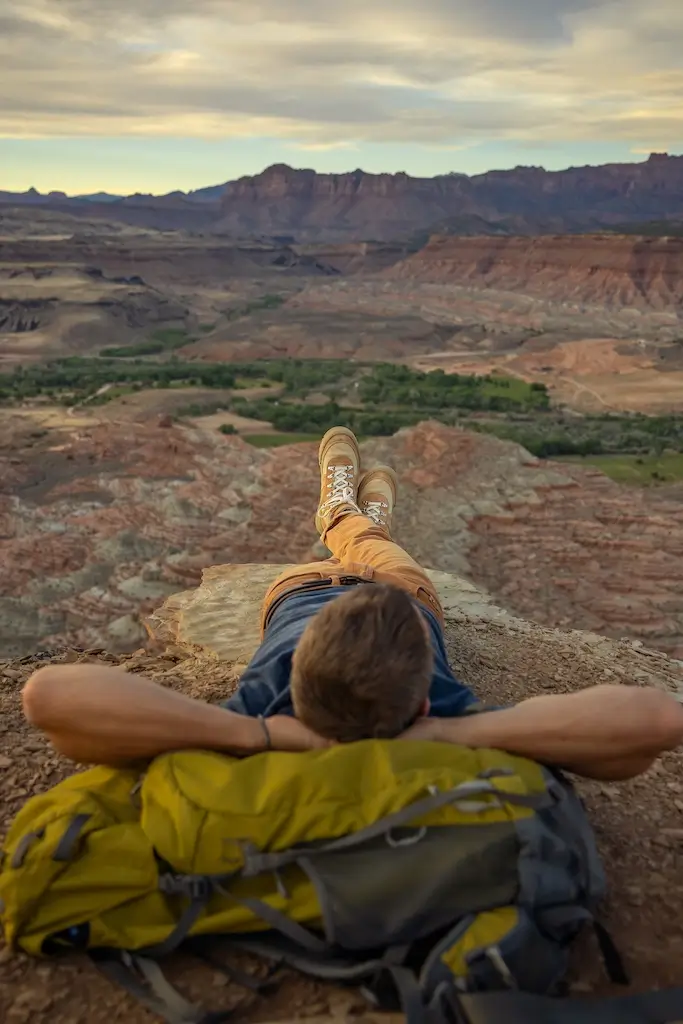 The desert presents extreme temperature swings, exceptionally abrasive terrain, sudden and powerful storms, and more. This is why at Erem we design each of our products explicitly to a ‘desert standard,’ because if they perform in the desert, they will outperform everywhere else.
The desert presents extreme temperature swings, exceptionally abrasive terrain, sudden and powerful storms, and more. This is why at Erem we design each of our products explicitly to a ‘desert standard,’ because if they perform in the desert, they will outperform everywhere else.
We design each of our products explicitly to a ‘desert standard’
The second reason I started Erem is because I believe that as a fourth generation shoe maker there is another model for how products should be made and businesses should be run. At Erem we believe it is our job to take responsibility for the entire lifecycle of our products, rather than just to the point of sale, which is currently the gold standard within our industry.
Linear consumerism has largely fueled the global mess we find ourselves in; I believe that Erem can help pave the way to a better and more sustainable model.
What were the main challenges and learnings you had when founding Erem?
Sustainably building a physical product in a remote environment during a global pandemic was extremely challenging.
If you’re trying to innovate on performance and sustainability in footwear, you can’t just outsource the product to a factory halfway across the world (which is what much of the industry does).
For example, we took a 3 month delay on our launch to prove that we could use linen thread to sew the outsoles to the upper of our Xerocole® collection. This reflects a stubbornness on our part as the outsole thread by mass is only .03% of our boot, but the other option didn’t meet our environmental standard.
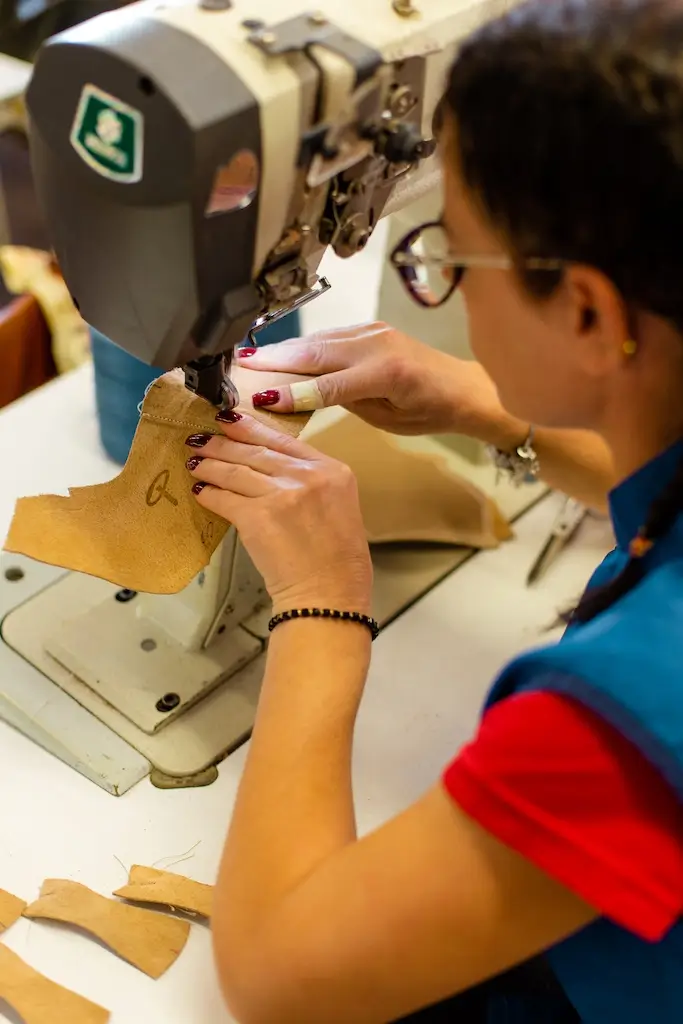
Solving this challenge involved sourcing a new thread supplier, connecting a supplier and a factory that didn’t know each other, recalibrating factory-grade sewing machines, field testing, and then iterating to improve on the initial results — all remotely. Just this one example took a lot of patience and follow-through and is indicative of the challenges that come with product innovation in a time like this.
Can you tell us about the materials you’ve selected for your signature hiking boot, and the drivers behind choosing these materials?
Every material in our Xerocole hiking boot collection was selected for two reasons: (1) its outstanding performance qualities and (2) because it meets a Biocircular standard, meaning it can return back to the earth and be re-streamed into a responsible next life.
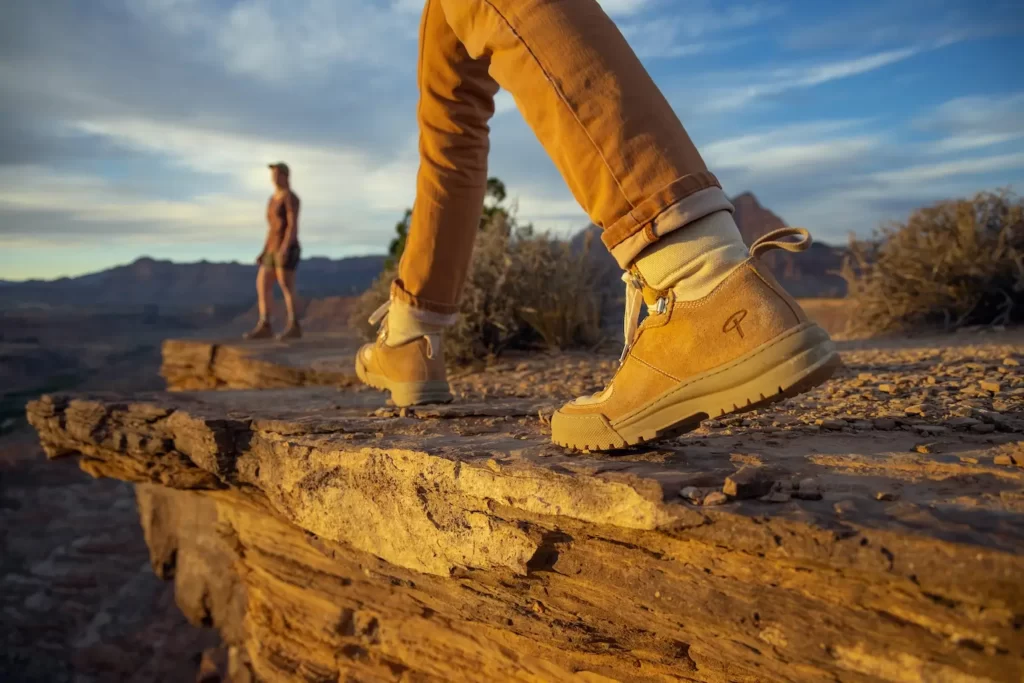 I envision a world where this dual sourcing criteria isn’t an accomplishment or a novelty, but is the norm. Consumers are rightfully aware about the issue around single use plastic water bottles.
I envision a world where this dual sourcing criteria isn’t an accomplishment or a novelty, but is the norm. Consumers are rightfully aware about the issue around single use plastic water bottles.
Not many people realize that 300 million shoes are thrown out each year in America alone, and that basically all of those shoes are condemned to 1,000 years in a landfill.
By making a product that performs better and has a longer lifespan, and that then has a responsible next life inherently built into it, we seek to change this.
Examples of some of the materials in our products include brass hardware, that we also use for aglets (lace tips). The majority of boots on the market use plastic hardware and aglets. Brass is infinitely recyclable and more durable, meaning it performs better than plastic.
Another example is the leather we use, which comes from a gold rated tannery, and is tanned with food-grade tannins, which can be turned into organic fertilizer at the end of its life. The leather is also metal-free and extremely durable and protective; it is a more premium article than what is used in most hiking boots.
Another example is that our insoles are made from cork. Cork is a carbon negative material that is exceptionally lightweight, never packs out, provides underfoot protection, and will mold to your foot over time.
Comparing this with the industry standard petroleum based foams that are typically used, the Xerocoles perform better and are better for the planet.
In your eyes, what’s the biggest achievement or milestone so far?
Releasing a no-compromise product that has competitive pricing is a hallmark performance, groundbreaking sustainability, and achievement for our brand.
That being said, our company’s logo is a depiction of a remarkable saguaro cactus I encountered on a hike in the Sonoran wilds.
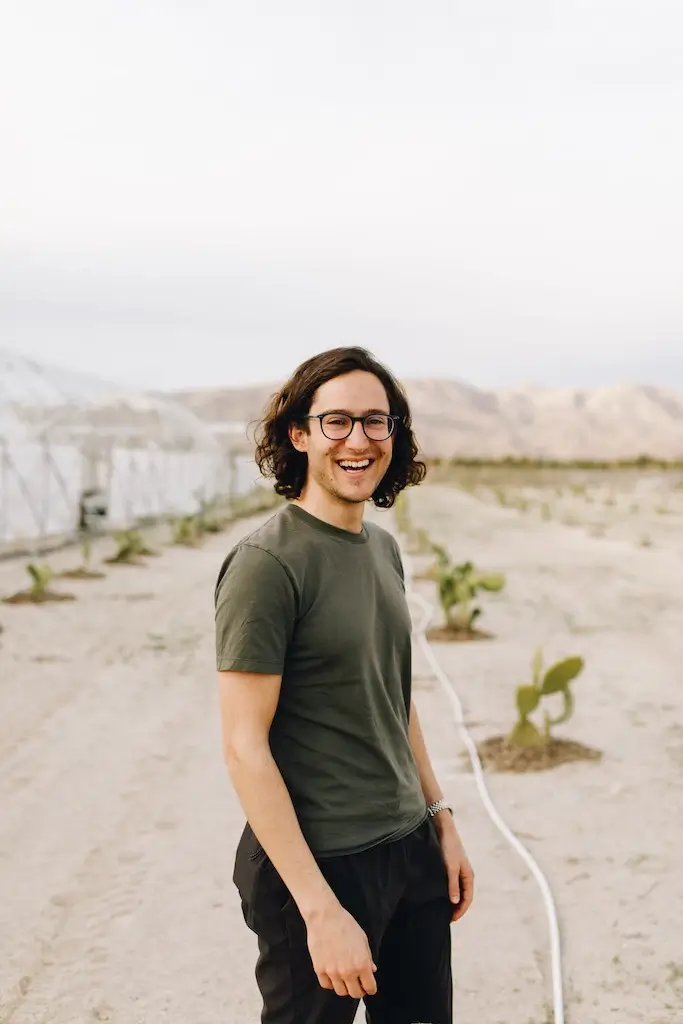
Saguaro cacti are remarkable for many reasons. They can live for hundreds of years, but when they flower, their flowers only last for a day at a time.
Our logo is a depiction of a remarkable saguaro cactus I encountered on a hike in the sonoran wilds.
To me, that perfectly represents the idea of a general outlook but with a daily urgency, which is what we are all about at Erem.
So I would say that our biggest achievements definitely sit in front of us, because I believe this outlook is critical for driving real impact and change.
How do you ensure your company stays true to your mission as you grow?
Our team meets every week to review how we’ve lived our company values. While we are a small company now, that practice is never going to change even as we grow.
Without constant focus on mission and values, I do believe that drift is a real possibility. That said, I think one thing that is easier for Erem is that our mission is in our DNA; we were founded for an explicit, mission driven purpose.
What do you think are the main challenges around sustainability in the footwear industry today? How do you approach these challenges with solutions?
There are many challenges in the footwear industry, but two I will highlight are 1) an uneven playing field and 2) limited shared resources.
An uneven playing field means that our market economy currently does a poor job pricing environmental externalities. This means that it is often cheaper for a company to produce a pollutive product than a sustainable one, which means that customers can end up having to choose between price and sustainability.
Erem cannot produce hiking boots at the same cost as some of our competitors for two reasons:
- Because we offer premium performance features.
- Other brands use materials that we think are not environmentally acceptable. For now, this translates to an advantage to our competitors as they can make more profit per unit or sell to customers for less. However, we believe that over time, the balance will flip the other way because consumers don’t want to have to choose between price and their values.
As more people discover Erem, I think our model is going to be an advantage because today’s savvy & sustainability-minded consumers will respect our focus on environmental mission.
The second challenge is shared resources. What that means is that there is no single market for sustainable sourcing. Erem took on the difficult challenge of building our supply chain from scratch. Collectively, we would have so many more sustainable products if finding a sustainable linen outsole thread was as easy as buying something on Amazon.
There is no shared directory or menu that exists for sustainable materials and factories. For a lot of brands, this information is proprietary and treated as a competitive advantage. Part of me understands this - that if a brand has invested time in developing an asset, giving it away to your competitors perhaps isn’t the wisest business strategy. But at the same time, choosing not to cooperate misses the big picture and is detrimental to our shared environment. If we don’t cooperate, we are going to destroy our planet.
There is no single market for sustainable sourcing.
If we don’t cooperate, we are going to destroy our planet.
While I think there should be a company that exists specifically to provide this sustainable sourcing information to others, in the interim, Erem is forthcoming with this information and will continue to recommend any supplier we work with to any brand or person that wants to know.
Biocircular is an important achievement for Erem, but it’s a much better achievement if other companies join us in this standard. To do this, brands are going to need to help each other with sourcing.
Do you have any advice for anyone wanting to launch a sustainable brand?
Definitely. There is a growing community of values-aligned, mission driven entrepreneurs and brand builders in almost every industry.
Get involved in the community - it will make your job easier in so many different ways! Building a network of people trying to do similar things with similar values is a huge shortcut to success.
Have you tried a product from another sustainable/ethical brand that you think our audience should know about?
I was gifted a sweatshirt from a brand called Industry of All Nations. I was impressed with their packaging, messaging, and the intentionality of the product. Check them out.
What is a favorite quote of yours?
“Nothing in the world can take the place of persistence. Talent will not; nothing is more common than unsuccessful men with talent. Genius will not; unrewarded genius is almost a proverb. Education will not; the world is full of educated derelicts. Persistence and determination alone are omnipotent. The slogan “Press On! has solved and always will solve the problems of the human race.” - President Coolidge
To me, this wisdom is as explicit as it is true: real, big change takes time, effort, and above all: persistence.
What does the future look like for your brand?
We are just getting started!
We have plans to release a number of new footwear products that all hit at the intersection of performance and sustainability in the next 6 months. This includes a camp shoe, our All-Weather line, and much more.
Wrapping Up: Erem Q&A
We want to say a huge thank you to Noah for taking the time to chat with us about his brand Erem.
We wish Erem the best for the future and love the vision and ethos behind the brand.
If you want to check out the brand visit their website here.
If you enjoyed this article and want to go behind the scenes of other great sustainable brands, check out our interviews with the founds behind brands like Presca, Floral Street, Kitty & Vibe, and Valani.
If you think of questions you want us to ask our next founder, let us know in the comments below!

